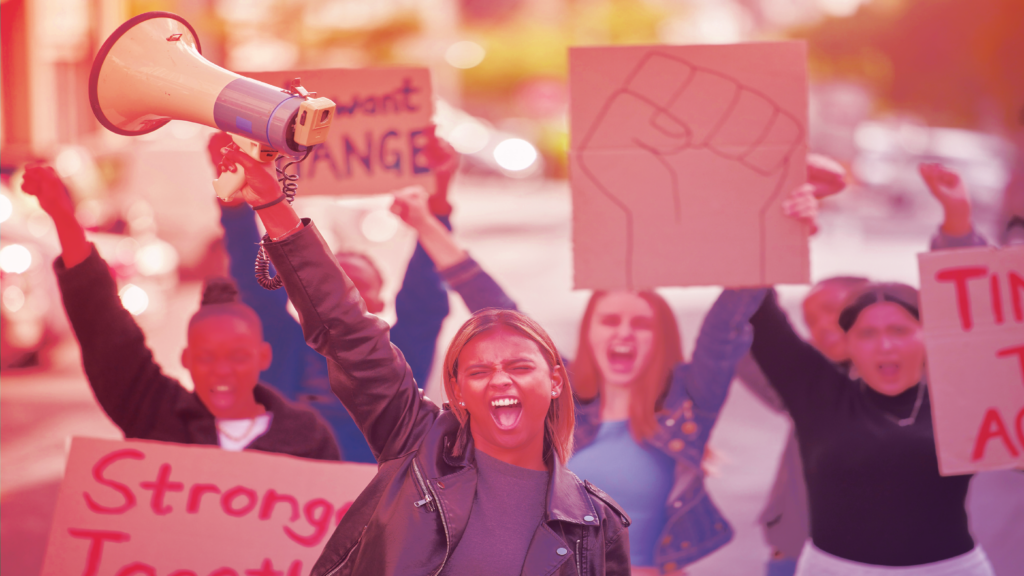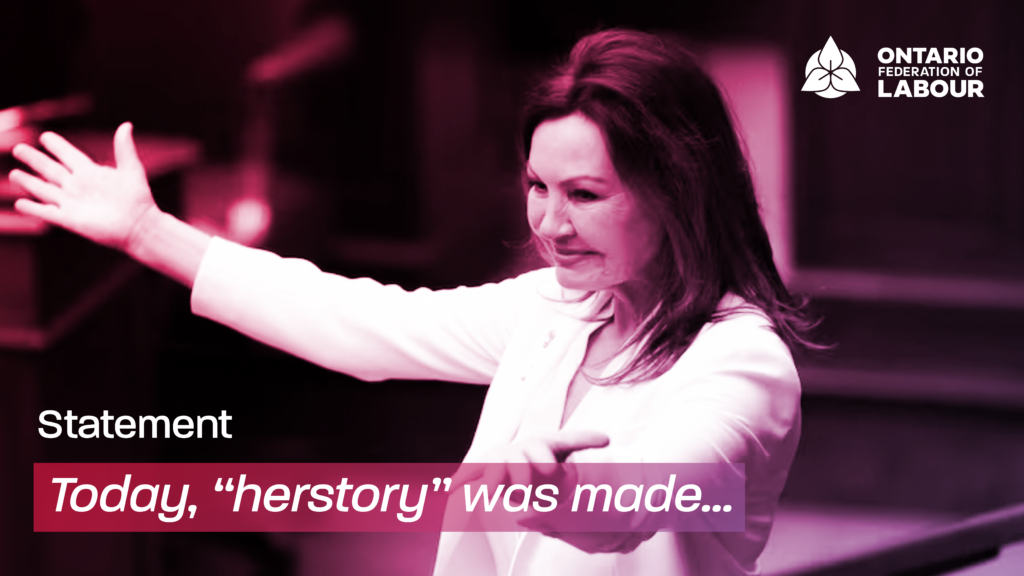
(November 25-December 10)
Violence against women, girls, transfeminine folx, gender diverse, and 2-Spirit people remains the most widespread human rights violation around the world.
In Canada, 44% of women who have ever been in an intimate relationship reported experiencing violence by a partner at some point, often experiencing severe forms of Intimate Partner Violence (IPV), such as being choked, assaulted with a weapon, and or sexually assaulted.
59% of Trans and gender diverse people in Canada have experienced violent victimization and are more likely to experience inappropriate behaviors in public, online, and at work than their cisgender counterparts.
Young women, particularly those aged 15-24, are at higher risk of Gender-Based Violence (GBV) and Intimate Partner Violence (IPV). Indigenous women are significantly more likely to experience both GBV and IPV compared to non-Indigenous women. 2SLGBTQIA+ women report higher rates of IPV and GBV than their heterosexual counterparts. Black and racialized women are more likely to experience GBV and IPV than non-Black or non-racialized women. Additionally, women with disabilities are more likely to experience GBV and IPV than non-disabled women.
These statistics highlight the urgent need for continued efforts to address and prevent gender-based violence and intimate partner violence.
Impacts of Gender-Based Violence and Intimate Partner Violence:
- Physical and Emotional: The impacts of GBV and IPV range from physical harm to long-term emotional distress to death. Rape and sexual assault can result in unwanted pregnancies, complications during pregnancy and birth, and sexually transmitted infections, including HIV.
- Social and Economic Repercussions: GBV and IPV can devastate livelihoods and worsen gender inequalities over time. Reporting or seeking help for GBV or IPV often results in additional threats, social stigma, and exclusion.
- Reduced Productivity and Performance: Victims of GBV and IPV often experience reduced productivity and performance due to the emotional and physical toll of abuse such as anxiety, depression, post-traumatic stress disorder, and physical injury.
- Lateness and Absenteeism in the Workplace: IPV and GBV can lead to increased lateness and absenteeism as victims may need time off to recover or deal with the consequences of abuse.
- Turnover and Lost Skills: High turnover rates and the loss of valuable skills, knowledge, and expertise are common among GBV and IPV victims.
- Presenteeism: Victims may be physically present at work but unable to fully engage or perform due to the effects of GBV or IPV.
- Workplace Culture: GBV and IPV can damage workplace culture and compromise workplace safety. Co-workers may be affected, whether they witness it or by the aftermath. They may experience stress or concern about the survivor.
- Legal Liability and Damaged Property: Employers may face legal liabilities and property damage resulting from GBV and IPV incidents.
Technology-Facilitated Sexual Violence:
And in this time of rapidly expanding technology, increased security risks and shrinking privacy, we are faced with Technology-Facilitated Sexual Violence (TFSV) which is the harmful sexual behaviours that occur via digital technologies. TFSV creates emotional and psychological harms, infringement on privacy, bodily autonomy, and sexual integrity.
Forms of TFSV:
- Online Sexual Harassment: Unwanted digital communication of a sexual nature, such as sexually suggestive comments or explicit messages, cyberstalking, and or spycams.
- Image-Based Sexual Abuse: Non-consensual sharing of nude images, pressure to send intimate images, deepfake nudes, and or sextortion.
- Homophobic/Transphobic, Misogynistic, and Racist Comments: Outing people online, harmful content proliferation, misinformation/disinformation, impersonation, online bullying, and or financial scams.
- Online Threats: Death threats, rape threats, hate speech, and or doxing.
This must end. The time to act is now! The devastating impacts of gender-based violence, intimate partner violence and technology-facilitated sexual violence demand our immediate attention.
#16Days Movement:
Join the #16Days movement to create a culture of consent, respect, and equity for all women, girls, transfeminine folx, gender diverse, and 2-Spirit people. From November 25 to December 10, let’s unite and take simple, powerful actions each day to end this violence and build a safer, more just world for everyone. Your voice and actions matter. Together we can make a difference!
Actions to Take:
Call on the Federal Government to commit to preventing and addressing third-party harassment and violence at work as part of its implementation of C-190. The current National Action Plan to End Gender Based Violence here. This action plan must include a commitment to closing gaps in existing legislation and regulation. This work should include a high-level meeting of union, employer, and government leaders to further understand the impact of this form of violence and to demonstrate a commitment to urgently addressing it.
Access Canadian Labour Congress (CLC) and Western University Centre for Research & Education on Violence Against Women & Children research report here.
Start Important Conversations: Advocate on social media for women, girls, transfeminine folx, gender-diverse, and 2-Spirit peoples’ rights to their own bodies, support women/trans/2-Spirit owned businesses in your community, sign petitions to support bodily autonomy, and more.
Tell Someone About It: Discuss abuse with friends, family, and co-workers. Break the silence, show your support, and build a community that is ready to end gender-based violence and intimate partner violence. Share why ending GBV and IPV are important to you.
Educate Yourself on GBV, IPV and TFSV: Learn more about GBV, IPV and TFSV to understand why it’s perpetuated and why it continues to be such a widespread global issue. There are many resources available, including articles, books, podcasts, movies, etc., including this booklet the OFL produced on bargaining domestic violence leave into collective agreements called, Domestic Violence Goes to Work Every Day: A Bargaining Guide. Share what you learn with others, both online and through conversations with your friends, family, community members, and co-workers.
Become an Ally: The roots of GBV and IPV are all around us – in sexist jokes that demean women, media messages, toxic masculinity, and rigid gender norms. Learn how you can take immediate action to prevent GBV, IPV, and join the online conversation.
Update Workplace Policies to Include TFSV: Educate staff and the public about workplace sexual harassment involving technology, including reporting options for victims and bystanders and procedures for responding to tech-based sexual harassment.
Spread the Word: Share ways we can help stop GBV and IPV, including teaching young children about consent and engage men in the movement. We can all work to create societies where someone who has experienced gender-based violence or intimate partner violence feels empowered to come forward, knowing they will be believed, protected, and not blamed.
Listen and Believe: Shame and stigma prevent many from coming forward. Listening and believing them is a big step forward towards changing attitudes and for healing.
Acknowledge/Celebrate a hero: Acknowledge and celebrate someone working to end GBV and IPV and moving the world toward gender equity.
Promote Leadership and Participation: Advocate to increase the ability for women, girls, transfeminine folx, gender-diverse, and 2-Spirit people to engage in decision-making processes affecting their lives and their communities. Do this by promoting their leadership and participation in political, policy-making, and decision-making spaces, making space for them on committees and review boards, etc.
Host a Guest Speaker: Invite an expert from a women’s, 2SLGBTQIA+, Indigenous, Black or Racialized organization to talk about the challenges facing survivors of GBV and IPV, as well as the programs and resources available. Arrange to have a question-and-answer period following the presentation.
Call on Leaders: Urge leaders to criminalize sexual harassment, promote economic rights and justice for women, girls, transfeminine folx, gender-diverse, and 2-Spirit people, and enforce anti-GBV and anti-IPV policies. Make ending gender-based violence and intimate partner violence a national priority and increase funding for GBV / IPV programs.
Host a Vigil or an Event Commemorate the National Day of Remembrance and Action on Violence Against Women in Canada on December6. Set up informational displays in public areas to raise awareness about gender-based violence and share information about the resources available in your community or local schools.
Host a Film Screening and Panel Discussion: Movies help us talk about difficult topics like gender-based violence. Screen a movie that deals with issues of power, control, and abuse followed by a panel discussion and Q&A session talking about the themes raised in the film and how those things may impact the audience, their family, and their community.
Be Mindful of your Words: How often have comments like “Dude throws like a girl” been laughed off? Gender stereotypes contribute to a world that allows gender-based violence. Commit to changing your language and tell folx who make those types of comments that it’s not okay.
Support GBV/IPV Organizations and Programs: Connect with local women’s shelters, 2SLGBTQIA+, or Indigenous organizations that work to prevent GBV and IPV and support survivors. Explore volunteering opportunities and other ways you can assist those living in shelters. Many shelters often need donations of clothes, food, sanitary products, books, gift cards, PJs, holiday gifts, or other items to provide security and comfort to survivors.
Together we can raise awareness and work towards ending gender-based violence and discrimination.
In Solidarity on behalf of the Ontario Federation of Labour Women’s Committee,
LAURA WALTON
President
Ontario Federation of Labour
JACKIE TAYLOR
Executive Vice President
Ontario Federation of Labour
SOLONGE SCOTT
Vice President, Women
Ontario Federation of Labour


